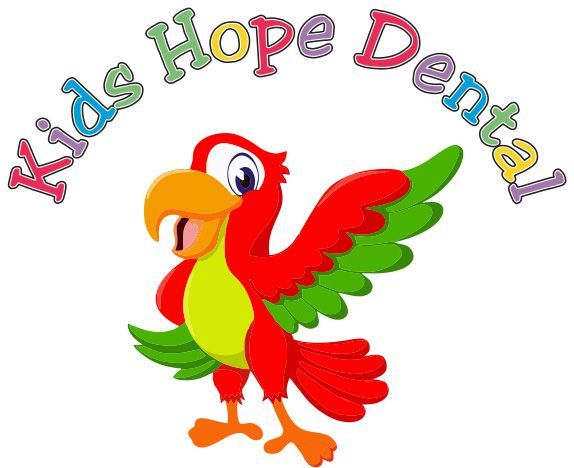Frequently Asked Questions
Is there something I should do before my baby gets teeth?
It's crucial to establish healthy oral habits early. After feeding your baby, gently wipe their gums with a soft gauze or a clean cloth. This practice not only helps separate eating from sleeping but also familiarizes your baby with oral care routines. Keeping the bottle out of the crib can also help your baby sleep through the night sooner and prevent future struggles with bedtime bottle weaning.
When will my baby get teeth?
Teeth typically begin to appear around six months of age, although timing varies widely among infants. Some babies may show early teething signs shortly after birth, increasing their risk for cavities, while others may not have any teeth until they are 18 months old. The sequence of tooth eruption is generally consistent, starting with the lower front teeth.
When should I start cleaning my baby's teeth?
Begin cleaning your baby’s teeth as soon as they emerge. Use a soft, baby-sized toothbrush or a damp terrycloth finger cot to gently clean the teeth and gums. Initially, a clean, wet toothbrush will suffice. By the age of three, you can introduce a pea-sized amount of children’s toothpaste and teach your child to spit after brushing. Ensure the toothpaste is kept out of reach to avoid accidental ingestion.
When should my baby first see a pediatric dentist?
The American Academy of Pediatrics advises a first dental visit by the age of one. Early visits allow for the establishment of a preventative care plan to combat decay and other dental issues. If you notice any concerning spots on your baby’s teeth or if they have early teeth or habitually take a bottle to bed, schedule a visit promptly.
How does the dentist work with a toddler?
We often use a knee-to-knee position with one parent holding the child and the child's head resting near the dentist's knee. This position usually helps make the child comfortable and cooperative, although some crying is normal. We typically recommend delaying the first cleaning until the child is two years old.
What is Early Childhood Caries (ECC) or Bottle caries Syndrome?
Early Childhood Caries (ECC), also known as Bottle Caries Syndrome, is a form of tooth decay caused by bacteria that produce acid when they break down sugars in the mouth. This condition often results from habitual nighttime bottle use with milk, formula, or juice. ECC is a significant cause of dental issues in children under six and can be prevented by eliminating nighttime bottle feeding.
How can I protect my child from getting ECC?
To prevent Early Childhood Caries, it's essential to wean your child from nighttime bottle-feeding or nursing. Replace milk or juice with water at bedtime to reduce the risk. Ensure thorough brushing of your child's teeth twice daily and avoid sugary snacks and sticky fruits. Schedule their first dental examination by age one.
What about breastfeeding and tooth decay?
While breast milk is generally healthy, it does contain sugars that can lead to decay if the baby nurses frequently at night or sleeps while attached to the breast. To mitigate this, gently wipe your baby's gums and teeth with a clean cloth after each feeding, especially at night.
What if my toddler won't let me brush their teeth?
If your toddler resists brushing, introduce the toothbrush as a play item initially. Allow them to mimic brushing their teeth while you do yours, and then gently guide them through the process. If resistance persists, you might need to securely hold their head in your lap for brushing, potentially with another adult's assistance.
What if a child under 3 years of age needs a lot of dental work?
Surprisingly, very young children can often be quite cooperative during dental treatments. However, for extensive procedures, we are equipped to safely administer oral and nitrous oxide sedation to ensure a comfortable experience for the child.
What should I do about my child's thumb sucking or pacifier use?
Gradually wean your child off the pacifier between 12 and 18 months. For thumb sucking, it's best to take a gentle approach until the child is at least three years old. Limit pacifier use to bedtime and moments of significant distress, and avoid offering it unnecessarily.
What are the most important dental health concepts for children between 3-6 years of age?
Two critical concepts are regular dental checkups and recognizing the importance of six-year molars, which are the first permanent teeth to erupt. Regular visits help detect and treat cavities early, and understanding that six-year molars are permanent can influence better oral care.
How often should my child have a dental checkup?
For most children, dental checkups every six months are ideal. However, children with excellent oral hygiene and no history of cavities may only need annual checkups.
What is Sealant?
Dental sealant is a protective coating applied to the chewing surfaces of teeth, particularly the grooves of permanent molars, to prevent decay. Applied around the age of six, it’s an effective preventative measure but does not substitute
Quick Links
Quick Links
Office Hours
- Monday
- -
- Tuesday
- -
- Wednesday
- -
- Thursday
- -
- Friday
- -
- Saturday
- Appointment Only
- Sunday
- Closed
Quick Links
Office Hours
- Monday
- -
- Tuesday
- -
- Wednesday
- -
- Thursday
- -
- Friday
- -
- Saturday
- Appointment Only
- Sunday
- Closed
Quick Links
Office Hours
- Monday
- -
- Tuesday
- -
- Wednesday
- -
- Thursday
- -
- Friday
- -
- Saturday
- Appointment Only
- Sunday
- Closed
